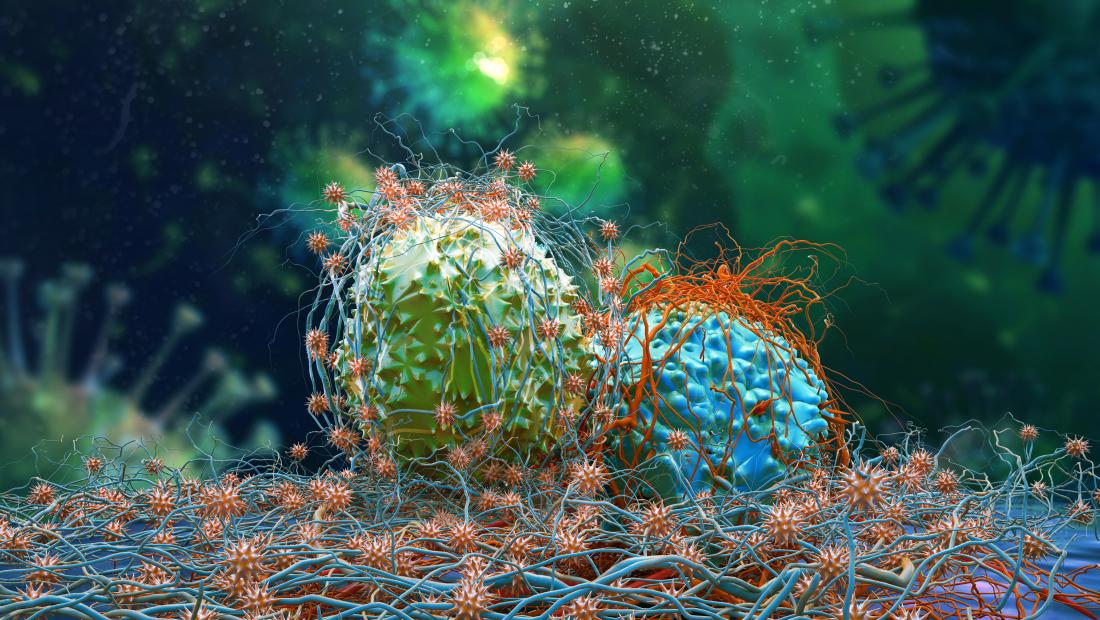
Blocking a protein called LTBP3 may stop cancer cells (shown here) from entering the blood vessels.
The new study was led by James P. Quigley, a professor from the Department of Molecular Medicine at The Scripps Research Institute (TSRI) in La Jolla, CA, and Daniel Rifkin, a professor of medicine working at New York University’s School of Medicine in New York City. Elena Deryugina, an assistant professor at TSRI, is the first author of the paper.
Deryugina and her colleagues started out from the observation that lower levels of a protein called latent TGF-beta binding protein 3 (LTBP3) correlates with better survival outcomes in people with certain forms of cancer.
In order to promote metastasis, LTBP3 binds to another substance known as TGF-beta, which is a “transforming” growth factor that plays a dual role in cancer, as it can either help tumors to spread or stop them from doing so.
As with growth factors in general, our bodies require TGF-beta to function properly. Research has shown that in normal cells and early cancers TGF-beta suppresses tumors, but in more advanced cancers it transforms and promotes the growth of tumors.
The challenge for researchers so far has been to mitigate the harmful effects of TGF-beta without altering its key role for normal cell functioning.
In the new research, Deryugina and colleagues investigated more closely the interplay between LTBP3 and TGF-beta.
From previous research that they conducted together, the scientists knew the many ways in which LTBP3 helps to regulate TGF-beta by attaching itself to it. However, they didn’t know whether the protein controlled even more processes or had a stand-alone role in driving cancer metastasis.
LTBP3 helps tumors to grow blood vessels
To investigate this, the researchers knocked out the LTBP3 gene in rodents and chick embryo cancer models, as well as in human tumor cell lines.
The human cell lines were from carcinoma, head and neck carcinoma, and fibrosarcoma. The rodents were also used to model metastasis of head and neck cancer.
Across all models, the researchers found that primary tumors could not metastasize properly without LTBP3. As Prof. Quigley explains, “Our experimental findings showed that LTBP3 is active in the very early steps of metastatic spread.”
“Specifically,” says Deryugina, “LTBP3 appears to help tumors grow new blood vessels in a process called angiogenesis, which is critical for tumor cell intravasation. That is when cancer cells enter into blood vessels of defined size and permeability.”
These results, the authors say, corroborate with previous research that showed that low levels of LTBP3 predict a better outlook for people with head and neck cancer.
“Collectively,” the scientists conclude, “these findings demonstrate that LTBP3 represents a novel oncotarget” — one that could potentially prevent early stage tumors from progressing without interfering with the normal roles of TGF-beta.
In the future, the team plans to examine more closely the complex dynamic between LTBP3 and TGF-beta in driving angiogenesis deep inside a tumor.
